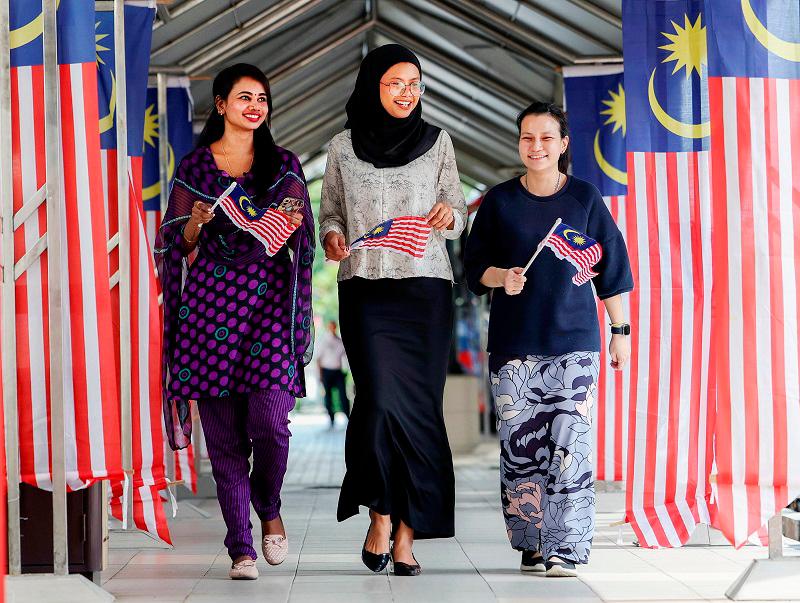PETALING JAYA: The National Unity Ministry will use findings from the State of Discrimination Survey 2023 by Architects of Diversity Malaysia as an early warning indicator to strengthen national unity.
The survey revealed that 64% of the 3,283 respondents experienced discrimination primarily based on economic status, age and ethnicity in the year before its results were released. Hindus reported the highest rate of religious based discrimination at 40%, Muslims 20%, Christians 26% and Buddhists 22%.
Indians also disproportionately faced discrimination in job applications, housing searches and interactions with law enforcement.
On Friday in Parliament, National Unity Minister Datuk Aaron Ago Dagang reaffirmed the government’s commitment to fostering inclusiveness and highlighted key initiatives such as the Madani Harmony Initiative, Rukun Tetangga and the Socio-Cultural Community framework to strengthen social cohesion.
“This effort can be carried out through various platforms by the respective agencies as a reminder that unity is a shared responsibility,” he said.
ISEAS-Yusof Ishak Institute Malaysia Studies Programme senior fellow and co-coordinator Dr Lee Hwok Aun urged policymakers to develop clearer legal and policy frameworks to address discrimination, emphasising that enforcement and facilitation of good practices remain weak.
“Given the lack of clarity from legal and policy standpoints on what constitutes discrimination, there’s neither enforcement of illegal practices nor facilitation of good practices.”
He acknowledged some ongoing efforts, particularly in the housing sector, but stressed that they must be broadened across other areas.
Lee said while the survey findings provided valuable insights, interpretation must be done with care.
“It highlighted how discrimination is widely experienced in Malaysia, with Indians more likely to report facing discrimination when applying for jobs, looking for housing or dealing with the police.
“But some situations experienced as discrimination might not always be so. For example, someone might feel discriminated against in a job application, but without a full view of the candidate pool, it is difficult to ascertain this.”
He also said there is a need for a more structured approach on Malaysia’s affirmative action policies.
“The policies aim to promote participation and develop the capability of designated groups in higher education, technical and professional jobs, enterprise and ownership.
“They are in the form of quotas or exclusive access to scholarships, university admissions, business loans and unit trust funds. They have mainly benefited the Bumiputera, although there are measures on a smaller scale for other races and Orang Asli communities as well as women.”
While the policies have increased Bumiputera representation in key areas, Lee pointed out a fundamental challenge.
“They have fallen short in developing capability. Malaysia must refine affirmative action to be more effective and fair for all designated groups. The goal should be to reduce inequalities in participation and capability across all communities.”
Lee also stressed on the importance of universal and targeted policies to ensure equal opportunities for all, adding that there be clearer regulations and enforcement mechanisms to tackle workplace discrimination.
“A fair employment commission should be set up to provide oversight, enforce anti-discrimination laws and encourage good practices.”









